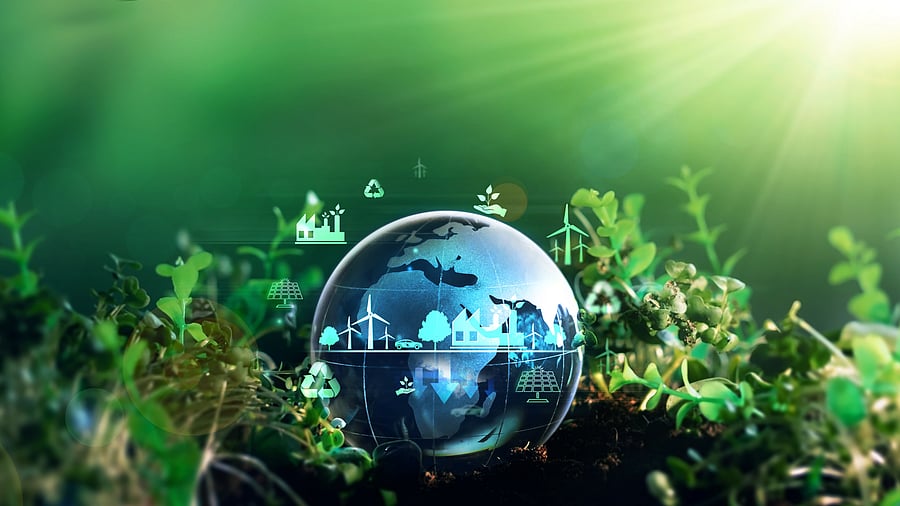
Image for representation.
Credit: iStock Photo
Mumbai: India’s tax-payer friendly Budget 2025-26 has signalled a boost to its ongoing efforts towards cleaner energy and transport systems, according to experts.
The Budget 2025 has introduced several measures to support domestic clean technology manufacturing, expand credit access, and enhance climate resilience in agriculture.
A notable provision is the expansion of the credit guarantee scheme, which is expected to unlock Rs 1.5 lakh crore in additional credit over the next five years for MSMEs, startups, and exporters. This support is aimed at strengthening industries including clean technology and renewable energy.
Rishbah Jain, Senior Programme Lead, Council on Energy, Environment and Water said: “The union budget has rightfully focussed on doubling down on making domestic manufacturing and exports competitive, which would create new jobs, economic growth, and a stable energy transition. Currently, for many clean energy equipment manufacturers, it is increasingly becoming difficult to compete with Chinese giants on artificial selling costs and overcapacities. CEEW analysis suggests that with backward and forward integration, India has potential competitiveness in many clean energy components such as battery anodes, solar wafers, silver paste, wind turbine gearbox, etc. However, lack of minerals and technological capabilities to process them, import reliance for manufacturing equipment, limited skilled workforce and trade barriers are often limiting factors.”
Aarti Khosla, Director, Climate Trends said: “The Union Budget presents an ambitious framework to boost its transition economy. With the announcement of the National Manufacturing Mission at its core, the document provides a vision to plug India’s supply chain vulnerabilities by further boosting the ‘Make In India’ vision in the current geopolitical context. Solar energy gets the highest allocation of Rs 24224 crore, with a clear focus on rooftop solar with the PM Surya Ghar Yojana. The announcement for a Nuclear Mission with the aim for 100 GW of non-fossil based energy by 2047 is a clear indication that the government is looking at options to decrease its baseload reliance on coal. However, the issues of safety associated with nuclear energy still loom large. Just 10 days before the deadline for submission of revised NDCs to the UNFCCC, India has shown its intent for climate action very clearly.”
Devinder Sharma, agriculture trade policy expert, said: “The government has kept agriculture as one of the top priorities, but this has been the case for the last eight years. However, the government has not talked about farmers’ income or agriculture income, which should be the prime concern. Without considering this, just keeping it as a top priority wouldn’t make any difference because if farmers do not have a stable income, they will not be able to deal with the challenges posed by climate change.”
Mahua Acharya, founder CEO, INTENT and former MD & CEO, Convergence Energy Services Ltd, said: “The specific focus on Budget 2025 on clean tech manufacturing is obviously a welcome step. We must do all we can to produce in India - and to that extent, the recognition of the need for batteries and raw materials is a really welcome step! The manufacturing mission is an excellent move - and the recognition of the need for grid scale batteries, EV batteries, PV cells is spot on as India looks to transition rapidly into greener growth.”
Union Budget 2025 | Nirmala Sitharaman, as Finance Minister, presented her record 8th Union Budget this time. While inflation has burnt a hole in the pockets of 'aam janata', the Modi govt gave income tax relief for those making up to Rs 12 lakh per year in salaried income. Track the latest coverage, live news, in-depth opinions, and analysis only on Deccan Herald. Also follow us on WhatsApp, LinkedIn, X, Facebook, YouTube, and Instagram.